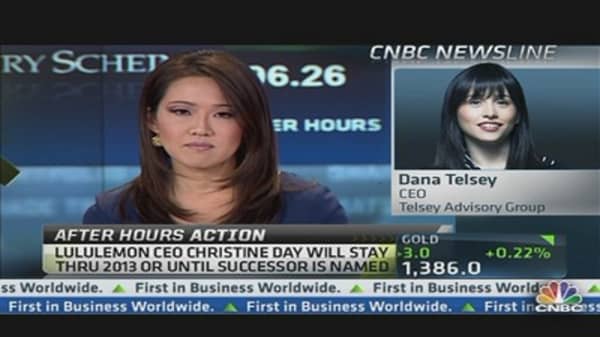Whether one believes Christine Day resigned as Lululemon's CEO or was pushed out after her five-and-a-half year tenure, she is leaving not only at the right time but in the manner a true leader should.
Shortly after the announcement three months ago that Lululemon would recall the now infamous, see-through black Luon yoga pants, Chief Product Officer Sheree Waterson resigned. She was responsible for product quality, and her leaving at that time undoubtedly reinforced a culture where accountability means something.
Day's duty extended to far more than damage control from "Sheergate." She had to stabilize Lululemon, to quickly protect the brand and stay on a growth trajectory.
Lululemon's first quarter ended May 5. In the press release announcing Day's exit, the company also said it had posted a 21 percent gain in net revenue year over year, highlighted by 7 percent growth in same-store sales.
Those numbers illustrate that Day successfully completed her mission, accepting the consequences of a massive product recall while overseeing an orderly transition to her successor.




